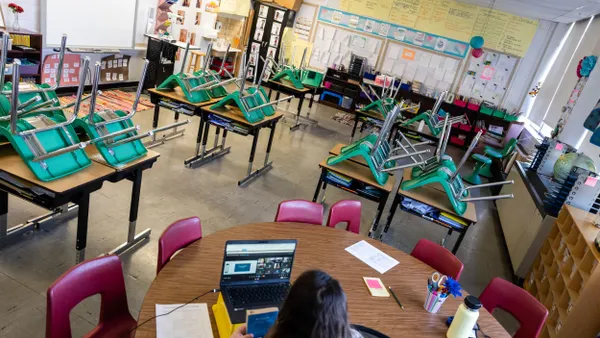Dive Brief:
-
More Democratic-leaning states are seeking to curb or prohibit book bans as a counter to the wave of curriculum and media censorship that has spread across the nation in recent years.
-
Illinois became the first state to outlaw book bans in June, and California followed suit shortly after. Other states considering similar bills include Minnesota, New York, Pennsylvania, New Jersey and, most recently, Maryland.
-
The efforts, often introduced as "Freedom to Read” acts, would prevent the removal of materials because of the origin or background of views of the authors. The bills would also require that school libraries present diverse points of view in their collections or risk losing funding.
Dive Insight:
The legislation spreading in Democratic-leaning states stands in stark contrast to "parental rights" and "anti-critical race theory" bills, which have resulted in thousands of book titles being removed from shelves. Those opposed to these book removals say that disproportionately target titles about or written by LGBTQ+ individuals and people of color.
Book ban attempts spiked in 2023 with a 65% increase in the number of titles disputed compared to the year prior, according to the American Library Association. Groups pushing for those bans focused their efforts on both public and school libraries.
Some of the same states that saw attempts to ban more than 100 titles are weighing or have already passed laws to curb book bans, such as Illinois and Pennsylvania.
Even in Florida, which has been at the forefront of the curriculum censorship movement and saw attempts to ban more than 100 titles in 2023, legislators passed a proposal that would charge a $100-per-item fee to parents and residents who challenge six or more books or curricular materials in a year. That bill was among the first of its kind seeking to curb challenges to instructional materials.
However, the Freedom to Read measures differ in that they require school boards and librarians to present diverse perspectives.
"The bill defends the professional judgment of educators in vetting and selecting books and should limit rampant attempts to ban books, often fomented by fringe national groups," said the Maryland State Education Association after the bill passed as emergency legislation Thursday.
The legislation, which now awaits Gov. Wes Moore’s signature, prohibits materials from being excluded from a school library "solely because of the origin, background, or views of the individual who created the material," or because of "partisan, ideological, or religious disapproval."
Under the bill, every school system is required to create policies and procedures to submit and review objections to curricular materials and media, including a requirement that materials remain available until objections are processed.
There were 3,362 books banned in the 2022-23 school year — a 33% increase from the prior school year, according to a PEN America report released in September.
The top five states with the most bans included Florida — which accounted for over 40% of all book bans — followed by Texas, Missouri, Utah and Pennsylvania.












